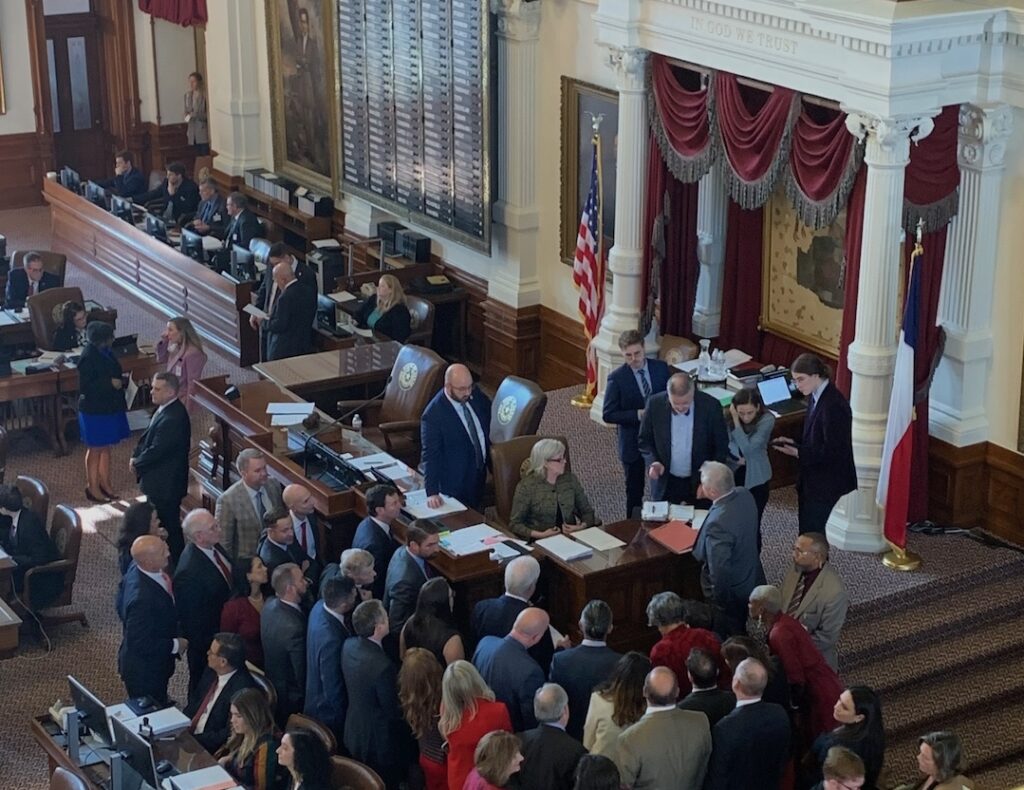Bipartisanship under attack
Texas politics is a harbinger of what is to come or decades behind the UK. Or both.
The long tradition of bipartisanship in the Texas House of Representatives, whereby elected Representations in both political parties collaborate to get bills passed, is under attack. The Republicans have dominated Texas politicis since the 1990s. But while their ideology and aspirations have been moderate, and mostly focused on the economy and providing services, in the Texas House of Representatives they worked with Democrats on the majority of bills while occasionally passing their own. But in recent years Ultra Conservatives have been organising with incredible efficiency at the grassroots, with financial backing from oil barons and help from various churches and internet-based groups to spread ‘patriotic’ and Christian messages, so that a sizeable proportion of moderates have been replaced by them in the Texas legislature – both House and Senate.

During the 88th session (January to May 2023), when I was doing a mini-ethnography of the Texas House of Representatives, Ultra Conservatives from the across the State arrived in buses at critical moments, to encourage their Reps to pass bills that reflected Republican priorities. I sat with them in the gallery and they told me how horrified they were by Republican collusion with the liberals. The GoP priorities were a mix of control of bodies (banning abortion and gender affirming care for trans children while keeping migrants out of the state), of ideology (in education, in the legislature) and of the constitution (making sure elections, rules and guns were defended and the Republican majority in tact). However, the majority of Republicans were lukewarm about some of these controversial measures and favoured the maintenance of a bipartisan co-operation so that politicians could work across the divide. Democrats and Republicans sat next to each other, ate together, worked collaboratively on committees, co-authored huge numbers of bills and debated in respectful tones.
The Speaker, Dade Phelan, appointed both Republicans and Democrats as Chairs to the Committees, which have an influence on which bills make progress. But The Ultra Conservatives manoeuvred against him over the last year. He won back his seat but pro- and anti-bipartisanship Republicans expressed unprecedented bitterness against each other. A few weeks ago, Phelan decided not to stand again as Speaker and two Republican candidates are now vying for the job: one backed by the Ultra Conservatives, who want to end co-operation with the Democrats, and another by the moderates and Democrats, who promises that some bipartisan traditions will be protected. If the promises are to be believed, then the Texan tradition of political co-operation is at stake. If those promises are false, then the possibility of collaboration has already been lost, just at the moment when the world needs bridge building and political compromise more than ever. Gone are the days when we can afford entrenched hostility in political domains in any country. Watch out for the election of new Texas Speaker on the 14th January – the fate of Texas (and butterfly-wings -like, possibly the world), will be hugely affected by that one vote.
For more details about this Speaker contest listen to the Scott Braddock and Jeremy Wallace podcast Texas Take – their decades of experience of Texas politics is conveyed in thoughtful, well-researched and honest reflection.